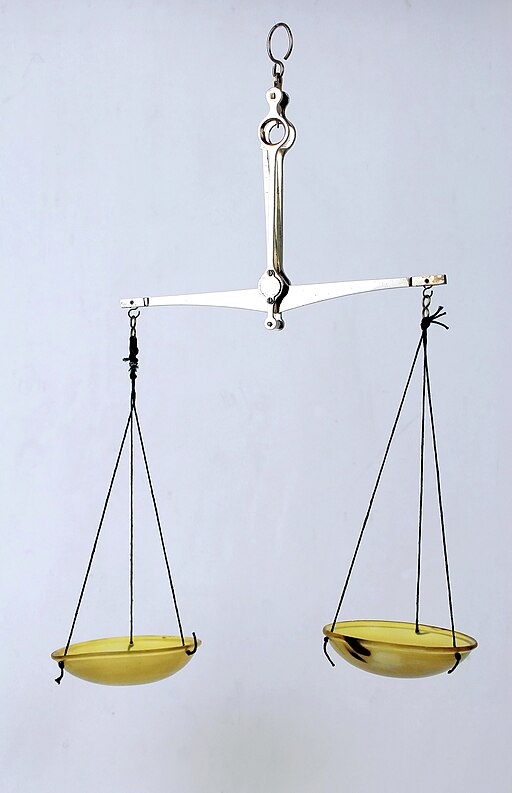Si vous avez déjà conduit sous la pluie sur une route boueuse, vous connaissez le danger. A gauche et à droite, il y a des fossés. Virez trop loin dans une direction et vous serez désolé, votre voiture ou votre camion sera endommagé et hors service.
Pour l’Église du Nazaréen, les conventions générales et l’Assemblée générale 2023 (du 9 au 16 juin) sont en cours à Indianapolis. Des délégués du monde entier se sont réunis pour examiner plusieurs résolutions. J’ai réfléchi à la façon dont les Nazaréens incarnent le juste milieu par rapport à un certain nombre de questions, et comment il y a de la sagesse à tracer et à maintenir un cap qui évite le péril dans les fossés. Examinons trois questions où cette position médiatrice favorise un ministère équilibré, efficace, et compatissant. Ces questions sont le baptême, le don des langues, et la sexualité humaine.
Baptême
Le baptême est le sacrement d’initiation à la famille de Dieu. Dans le livre des Actes, une maison entière (grec oikos) pouvait être baptisée en une seule fois. Dans Actes 10, Pierre a baptisé Corneille et sa maison, tandis que dans Actes 16, Paul et Silas ont baptisé dans la famille de Dieu le geôlier et son oikos. C’est un écho de l’Ancien Testament dans le Nouveau Testament, où Josué a proclamé : « Moi et à ma maison, nous servirons l’Eternel » (Josué 24:15, Genève). Les familles comprenaient probablement des individus jeunes et âgés. Pierre avait raison quand il a promis à la foule à Jérusalem le jour de la Pentecôte : « Car la promesse est pour vous et pour vos enfants… » (Actes 2 :39, Genève).
Le Manuel de l’Église du Nazaréen reflète à la fois dans son Article de Foi sur le baptême et ses rituels de baptême l’enseignement de la Bible selon lequel le baptême est un signe extérieur de la grâce intérieure de Dieu active dans la vie d’un individu, à toutes les étapes du parcours humain. Le baptême met l’accent sur Dieu et sa grâce et non sur nous. Que les parents présentent leurs bébés au baptême ou que des enfants plus âgés, des adolescents, ou des adultes se présentent, le sens est le même: l’Église les accueille dans le peuple de Dieu. Pour les bébés et jeunes enfants, ils recevront plus tard, à l’âge approprié, des instructions sur la signification de leur baptême, généralement vers l’âge de 12 ans, où ils pourront alors reconnaître publiquement leur foi en Christ. (N.B. : cette affirmation publique ne devrait pas être un soi-disant « rebaptême » puisque le baptême est un événement unique dans la vie. Voir Éphésiens 4:5). Pour les candidats au baptême plus âgés, un cours avant leur baptême est suffisant.
Cette position de permettre le baptême des enfants et le baptême des croyants est un exemple du juste milieu qui a bien servi les Nazaréens depuis notre naissance à Pilot Point, Texas en 1908. D’autre part, un domaine où l’Église du Nazaréen a été étrangement non-conforme à la communauté plus large de la foi chrétienne est la relation entre le baptême et la réception des membres. Il est possible actuellement d’être membre de l’Église du Nazaréen et de ne pas avoir été baptisé. Cela semble d’autant plus étrange lorsque nous enseignons aux nouveaux nazaréens les trois valeurs de « chrétien, sainteté, et mission ». La position chrétienne est claire, que le baptême est le sacrement d’initiation à l’Église. La séquence devrait être 1) le baptême, et 2) la réception en tant que membre nazaréen. L’Assemblée générale a l’opportunité de nous mettre en conformité avec la pratique chrétienne historique en votant pour approuver CA-701.
Baptême de l’Esprit et le don des langues
Un deuxième domaine sur lequel cette Assemblée générale pèsera est la question de l’évidence du baptême du Saint-Esprit. (Voir le paragraphe 925 du Manuel de 2017, qui est sujet à la ré-approbation ; voir également la résolution CA-711). L’Église du Nazaréen souligne que la preuve de la présence du Saint-Esprit dans la vie du croyant est le fruit de l’Esprit (Galates 5 :22-23). Cela inclut la liste des caractéristiques de Paul telles que l’amour, la joie, la paix, et la patience. L’histoire nazaréenne est instructive et peut nous guider. Bien que notre nom confessionnel pendant une décennie ait été «l’Église pentecôtiste du Nazaréen», l’Assemblée générale de 1919 a abandonné le mot «pentecôtiste» car il était devenu associé à la pratique des groupes engendrés par le Réveil de la rue Azuza (1906-1908). Ils croient que le parler en langues est la preuve du baptême de l’Esprit.
Ce sujet controversé reste d’actualité à ce jour, alors que l’Église du Nazaréen se développe dans le monde entier. Le programme d’études utilisé en Afrique par l’Institut Théologique Nazaréen (ITN) examine l’enseignement du Nouveau Testament sur le parler en langues (ou langages), en regardant non seulement les Actes des Apôtres, mais les écrits de Paul et Pierre (voir Romains 12 :3-8, 1 Corinthiens 12-14, 1 Pierre 4:10-11). En tant que directeur de l’ITN, j’ai été l’un de ceux et celles qui ont participé à la mise en place de ses différents cours, qui ont été rédigés par une équipe. Dans le cours « La Théologie Chrétienne 2 », une voie médiane a été soigneusement tracée entre deux extrêmes : 1) nier complètement le don des langues et d’autres dons spirituels (comme le font les cessationnistes), enseignant que les dons spirituels ont cessé après les premiers siècles de notre ère, et 2) Compréhensions pentecôtistes et charismatiques de la glossolalie, ou certains parlent dans une langue céleste qui doit être interprétée lors du culte de l’église.
Le cours ITN soutient que le don des langues est effectivement le don des langues humaines, comme illustré le jour de la Pentecôte. De véritables langues humaines étaient parlées, sous l’onction divine, et dans le but de communiquer l’Evangile. Suivant le principe herméneutique selon lequel des passages qui sont clairs peuvent éclairer à la lumière des passages qui le sont moins, Actes 2 devient la clé d’interprétation pour comprendre le don des langues tel qu’il est présenté dans Romains, 1 Corinthiens et 1 Pierre.
Certes, il s’agit d’un sujet complexe qui ne se prête guère à un résumé en quelques courts paragraphes. Notamment, l’Église wesleyenne, lors de sa récente Conférence générale, a ajouté un langage à sa Discipline qui permet la compréhension charismatique des langues en tant que don spirituel des langues célestes, nécessitant une interprétation lorsqu’elles sont utilisées publiquement. Il s’agit d’un développement important étant donné que l’Église wesleyenne est l’une de nos églises sœurs les plus proches sur le plan théologique.
Vu comment le don des langues a été enseigné dans le contexte nazaréen africain au cours des vingt-cinq dernières années, en particulier dans la formation théologique de nos ministres africains, nous espérons que l’Assemblée générale de 2023 procédera avec une grande prudence alors qu’elle examine à nouveau le renouvellement ou la modification du paragraphe 925. Le risque de confusion est important et tout changement dans notre position lors de l’examen de la résolution CA-711 ne devrait être fait qu’après une étude approfondie par des théologiens nazaréens qui représente la dénomination provenant de tous Régions du monde.
Sexualité humaine : Paragraphe 31
Enfin, la sexualité humaine est un sujet qui continue de susciter des débats tant à l’extérieur qu’à l’intérieur de l’Église du Nazaréen. Le Manuel de 2017 a pour la première fois réuni sous un même titre – le paragraphe 31 – une déclaration qui englobe un certain nombre de questions liées à la sexualité humaine. Parmi celles-ci figure la pratique de la polygamie, la prise de plusieurs conjoints. Bien qu’il existe de nombreux pays en Afrique où la polygamie (ou, plus précisément, la polygynie – le fait de prendre plusieurs épouses) est autorisée par la loi, les nazaréens africains ont été parmi ceux qui ont voté à une écrasante majorité lors de l’Assemblée générale de 2017 pour approuver la formulation interdisant la polygamie. Nos délégués africains étaient contre-culturels lorsqu’ils ont approuvé le paragraphe 31. C’était une décision audacieuse de leur part, surtout lorsque la polygamie est bien enracinée dans le contexte africain, en particulier dans les zones rurales.
Maintenant en 2023, c’est au tour des délégués américains et européens de vivre l’expérience de la tension croissante entre les vents culturels dominants et notre position nazaréenne en ce qui concerne les LGBTQ+ (lesbiennes, gays, bisexuels, transgenres, et queer). Récemment, un groupe de Nazaréens, comprenant des anciens ordonnés, a proposé que la dénomination adopte une position « affirmant pleinement » (ang. « fully affirming ») ce qui permettrait l’accueil en tant que membres les individus gais, lesbiennes, bisexuels pratiquants, et les transgenres. En plus, le clergé nazaréen aurait l’autorité de célébrer les mariages entre deux membres du même sexe. (Voir leur site Web à l’adresse http://www.lovingnazarenes.com). Cette position progressive peut être considérée comme une extrémité du spectre, car nous identifions les paramètres d’une voie médiane. Il est important de noter qu’aucune résolution en attente de l’Assemblée générale de juin 2023 n’a été proposée, visant à annuler le paragraphe 31, et ainsi à adopter la position « fully affirming ».
En revanche, le côté opposé du spectre, une approche très conservatrice, figure dans les résolutions en instance devant l’Assemblée générale. La résolution CA-705 supprimerait une grande partie du langage du paragraphe 31 qui est gracieux, insérant à plusieurs reprises des affirmations selon lesquelles l’intimité entre personnes de même sexe est un péché. Certes, le paragraphe 31 est déjà très clair sur le fait que toutes les pratiques qu’il mentionne sont interdites, mais curieusement, nulle déclaration similaire disant « c’est un péché » n’est recommandée pour aucun des autres comportements interdits par le paragraphe 31. L’effet du changement proposé est d’impliquer que d’autres types de transgressions sexuelles sont mauvaises, mais celle-ci en particulier est vraiment mauvaise. Il s’agit d’un pas en arrière, revenant à la teneur du langage antérieur du Manuel d’avant 2017 pour distinguer pour une correction spéciale ceux qui pratiquent l’homosexualité. L’une des raisons pour lesquelles une commission a été mise en place en 2013 était de rectifier ce traitement déséquilibré dans les déclarations du Manuel, en mettant en évidence une catégorie de délinquants – celle qui peut inclure un peu plus de 7% d’Américains qui s’identifient comme LGBT – tout en accordant moins d’attention à l’autre 93 %.
La déclaration révisée du Manuel, soigneusement élaborée par un groupe de travail international, a abouti à ce que nous connaissons maintenant sous le nom de paragraphe 31. Il oriente un juste milieu entre ce que le site « Loving Nazarenes » propose et ce que la résolution CA-705 du district du Kentucky accomplirait. Depuis son apparition en 2017, le paragraphe 31 a été bien accueilli par de nombreuses congrégations nazaréennes, et les pasteurs nazaréens ont déclaré publiquement via les médias sociaux que la déclaration est cohérente, aimante et mérite d’être maintenue. Certaines églises, telles que Trinity Midtown Church of the Nazarene à Kansas City, Missouri, dirigée par les pasteurs Andy et Sarah McGee, ont adopté la déclaration comme fournissant un contexte utile pour un ministère compatissant dans la communauté LGBTQ+. Notamment, une déclaration récente du Dr Jeren Rowell, président du Nazarene Theological Seminary, donne le conseil de ne pas toucher au paragraphe 31. Comme Rowell, je pense que nous devons faire preuve d’une grande prudence avant de décider de modifier une déclaration médiatrice qui – bien qu’elle ne puisse jamais satisfaire tout le monde – s’est déjà révélée utile pour maintenir l’Église du Nazaréen aussi unie que possible dans sa mission. En même temps, nous avons toujours cru que lorsque nous suivons la lumière que nous avons, Dieu nous donnera plus de lumière. Restons ouverts au Saint-Esprit et ouverts à de nouvelles recherches qui incorporent une étude attentive de l’Écriture, telle qu’illuminée par la raison, la tradition, et l’expérience.
Conclusion
L’Assemblée générale 2023 est là. Le baptême, le don des langues, et la sexualité humaine ne sont que trois des questions importantes dont discutent les délégués. En évitant les fossés à gauche et à droite, orientons plutôt une voie médiane, un juste milieu. Répondons à l’appel à la prière récemment diffusé par le Conseil des surintendants généraux, demandant au Saint-Esprit de visiter l’Assemblée générale d’une manière puissante. Que Dieu accorde à nos délégués et à nous tous la sagesse alors qu’ensemble, nous avançons avec unité et confiance vers un avenir plein d’espoir.
___________________________________________
Images
Balance – From Miloš Jurišić, CC BY-SA 3.0 https://creativecommons.org/licenses/by-sa/3.0, via Wikimedia Commons
Colombe – User:Manfreeed, Public domain, via Wikimedia Commons
Symbole maculin/féminin – twitter, CC BY 4.0 https://creativecommons.org/licenses/by/4.0, via Wikimedia Commons







 By any standard, John the Baptist was odd.
By any standard, John the Baptist was odd. Karen Blixen (aka Isak Dinesen) published Out of Africa in 1937. In this classic memoir, she reflects upon her time as a small-time coffee farmer and expatriate living west of Nairobi, Kenya. Many know of Blixen thanks to the 1985 movie, “Out of Africa,” starring Meryl Streep and Robert Redford, which is based upon Blixen’s account.
Karen Blixen (aka Isak Dinesen) published Out of Africa in 1937. In this classic memoir, she reflects upon her time as a small-time coffee farmer and expatriate living west of Nairobi, Kenya. Many know of Blixen thanks to the 1985 movie, “Out of Africa,” starring Meryl Streep and Robert Redford, which is based upon Blixen’s account.

 How big is the “Big Tent” in the Church of the Nazarene? Evangelist Dan Bohi and Pastor Rob McCorkle have written a fascinating book that may provoke readers to ask this question with greater urgency.
How big is the “Big Tent” in the Church of the Nazarene? Evangelist Dan Bohi and Pastor Rob McCorkle have written a fascinating book that may provoke readers to ask this question with greater urgency. I opened my e-mail today and found a message from my state Board of Elections. In less than 2 months, Americans will go to the polls and cast their vote for many elected offices. These range from local Sheriffs, city council members, state representatives, governors, judges, the U.S. House of Representatives and the Senate.
I opened my e-mail today and found a message from my state Board of Elections. In less than 2 months, Americans will go to the polls and cast their vote for many elected offices. These range from local Sheriffs, city council members, state representatives, governors, judges, the U.S. House of Representatives and the Senate.